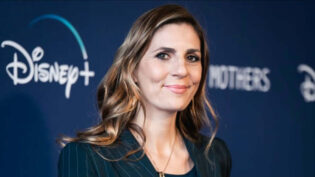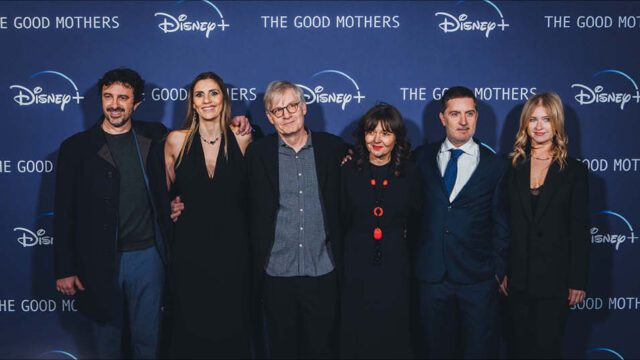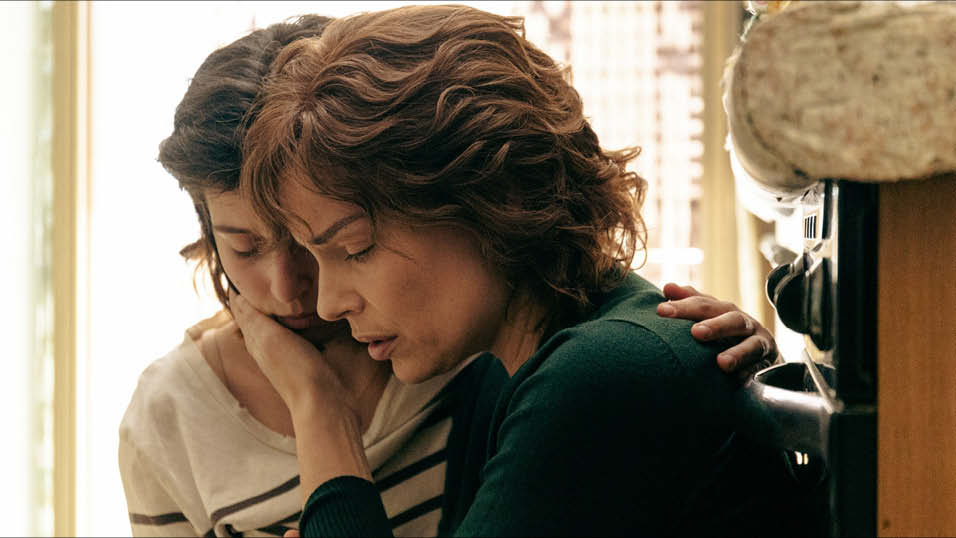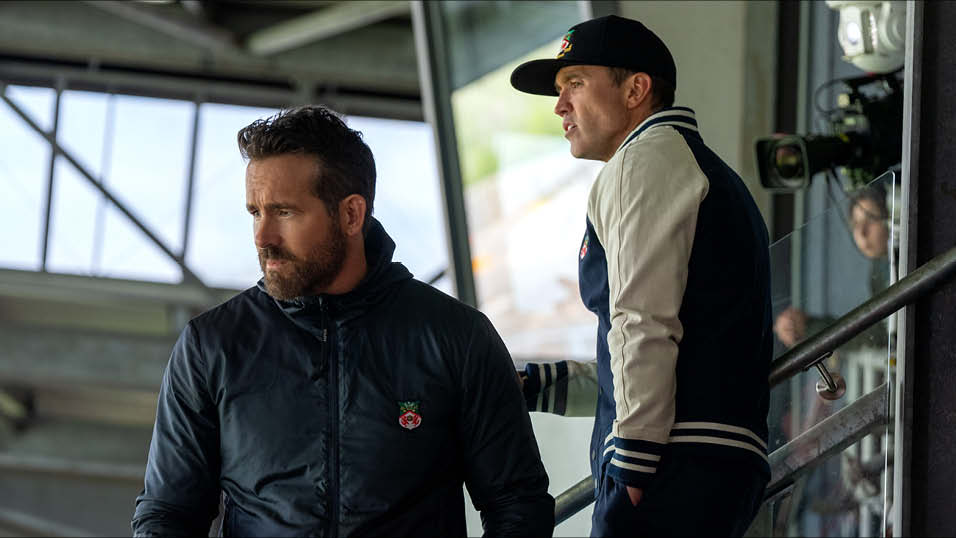The Good Mothers, produced by House Productions and Wildside and showing now on Disney+, is a multi-layered narrative that follows the shocking true story of three women who were born into the deadliest of the Italian Mafia clans, and how they worked with a courageous female prosecutor to bring it down from the inside. The women must fight their own families for the right to survive and build a new future for their children.
Based on the book by George Polk award-winning journalist Alex Perry and adapted for the screen by BAFTA nominee Stephen Butchard (Bagdad Central, The Last Kingdom), the project is directed by BAFTA and EMMY nominated Julian Jarrold (The Crown, Becoming Jane) and award-winning Elisa Amoruso ( Sirley, Chiara Ferragni: Unposted) and is produced by House Productions (“Sherwood”, “The Wonder”) and Wildside (“My Brilliant Friend”, “Anna”) a Fremantle company.
Here, Elisa Amoruso, talks about the making of the drama

‘The Good Mothers’ has definitely been one of the most important projects I have had the chance of directing in my career.
This amazing, though difficult journey started a year and half ago when Lorenzo Gangarossa, producer from Wildside who were House Productions’ co-producers on the project, called me to ask if I wanted to direct three episodes with Julian Jarrold.
The show is entirely based on Alex Perry’s book ‘The Good Mothers’. Reading it, I was really moved by the true stories of these women: they were living a very oppressed life in Calabria. Under patriarchal rules. I knew of the life of Lea Garofalo, but I didn’t know of Maria Concetta Cacciola or Giuseppina Pesce, nor the relationship they had with the female prosecutor who helped them break out of the cage they had been imprisoned in. These women had never been able to decide for themselves what to do with their lives, they couldn’t choose their husbands, and they became mothers when they were fifteen and seventeen years old, respectively. They didn’t have a perspective of what a different life might be. They had been living in a little town in a very narrow minded society, ruled by criminals. ‘Ndrangheta’ is a certain type of mafia that grounds its strength in controlling family relationships.
For years, these women were under the influence of their fathers, brothers, husbands. Cruel men that dictated every aspect of their lives, including, most devastatingly how they would meet their end.
As soon as I read Stephen Butchard’s script, I felt drawn to the characters, to these women that generally had always been considered invisible. It was beautifully written and I immediately felt an urgency to tell their lives as accurately as possible.
Julian Jarrold and I had a great working relationship. We shared our thoughts about casting choices, the visual style, and agreed on not showing the violence openly, but giving the viewer a few suggestions of the oppression that these women were forced to suffer.
We chose to shoot in Calabria at the very beginning of the recce. We had tried to film in the real villages where these women had spent their childhood; Rosarno and Pagliarelle. Yet we were soon informed by the producers that the atmosphere was too risky, so we found similar locations. I was really struck by the wildness of the nature; the landscapes were powerful. All set around illegal constructions that were widespread within the area.
The intention of the show was not in telling the mafia’s story of glorifying violence or turning criminals into heroes. We could only make this happen due to the extraordinary work of the actors. Working with them was a wonderful, and yet challenging experience.
I already knew some of the actors as I had worked with them previously, especially Micaela Ramazzotti (Lea Garofalo) and Valentina Bellè (Giuseppina Pesce). Micaela and Valentina, Gaia Girace, Barbara Chichiarelli and Simona Di Stefano studied a lot in preparation for their roles. They shared in mine and Julian’s responsibility to tell the whole truth of these characters and their tragedy.
We worked together on the details of their emotions and we tried to get as close to the reality of the situation as much was possible. All the cast were really involved in the process. We all felt it was so important to give a soul to these people, to raise up their voices, so that they could be an example to follow for all other women that are forced to suffer oppression.
It was a tough and painful journey and it was important having a very good team of producers on our side to support our job. Juliette Howell and Harriet Spencer from House Productions and Lorenzo Gangarossa and Mario Gianani of Wldside, followed every single step of the process.
Disney helped us in providing trust and freedom for any idea Julian and I had whilst on set. It was a very creative experience. We had a constructive dialogue all the way to the end of the production, discussing the episodes together in every single aspect: writing, editing, colour, sound and music.
The soundtrack is very intense and disquieting, although minimal. We worked with Giorgio Giampà, our composer, asking first for several themes for each character. Then in editing, we decided instead to combine them so that these stories, thematically at least, could be told as one.
Lea, Denise, Giusy and Concetta shared the same feelings of struggling, sacrifice and being overwhelmed by a tragic destiny they couldn’t choose. They were looking for love but instead found violence, by the same people that were supposed to raise and love them: their parents, their husbands. Their children represented their one and only hope to have a better future. So for their sake, they decided to fight. That’s the reason we were so thrilled with the Berlinale Series Award: this huge recognition will help spread these stories all over the world, delivering an important message of freedom.

Jon Creamer
Share this story


















